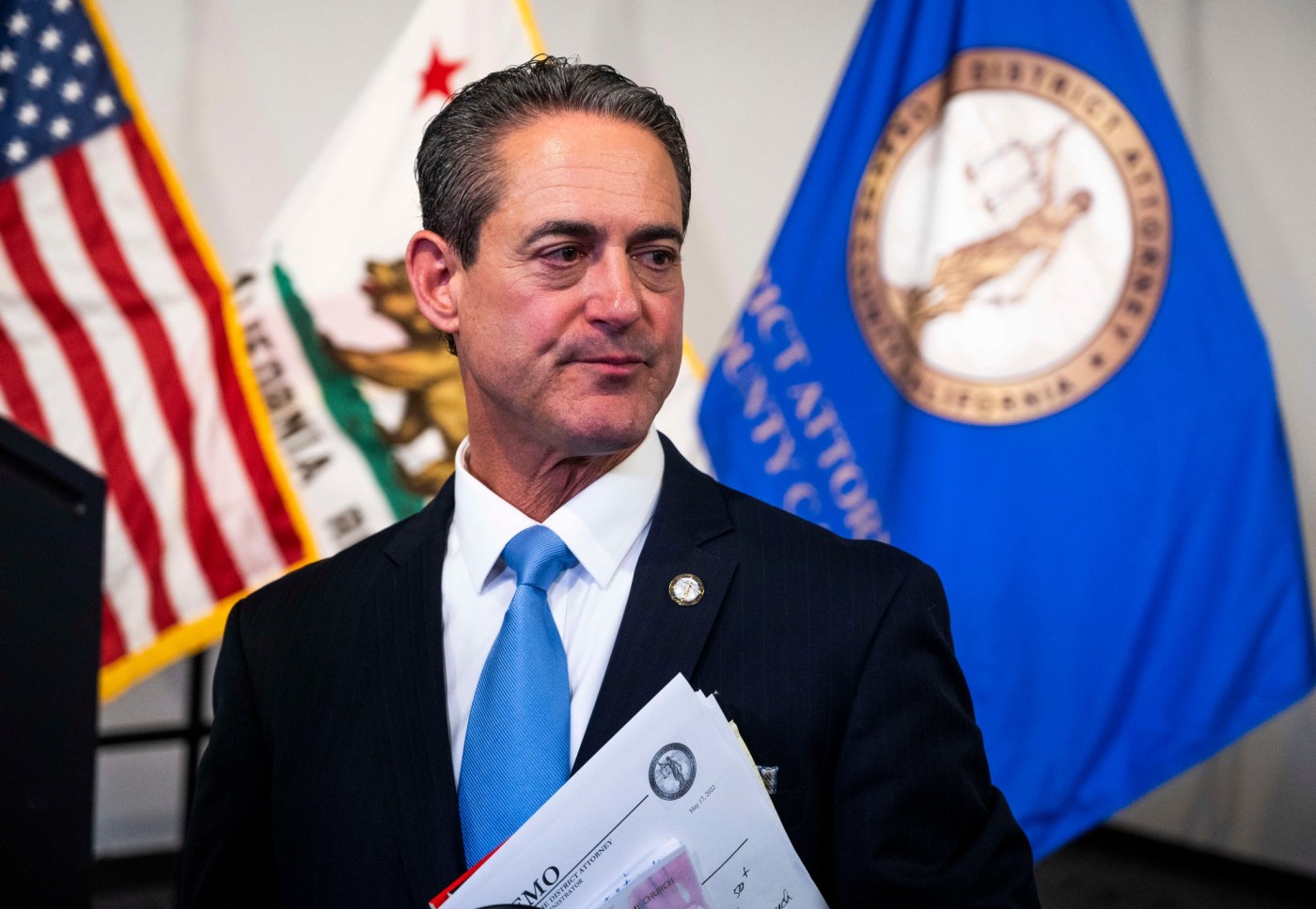In a warning to local and state leaders and the community, Orange County District Attorney Todd Spitzer said this week that a dozen criminal defendants deemed incompetent to stand trial could be released to the public through January 2026 if Orange County cannot find a locked-down facility to house them.
However, a two-week extension was agreed upon to postpone the release of two defendants, who had been scheduled for hearings on Friday, so that Orange County officials could continue to seek options, authorities said.
Some of the defendants included in Spitzer’s Wednesday statement include people accused of murder, assault and sexual assault.
Under California law, people who are found incompetent to stand trial must be sent to a state hospital or secure mental health care facility. The state allows up to two years for treatment and after that, counties must either find a place to continue care or release them.
“As a result the District Attorney has no further say in protecting the public in these cases,” Spitzer said in the statement.
“The County of Orange – due to an apparent lack of planning and despite months of warnings has up to this point failed to find treatment beds which meet the required guidelines for placement in advance of a looming deadline,” he continued.
“This is unacceptable,” he added.
Spitzer called on the county’s Board of Supervisors to call a special hearing on the issue.
Spitzer also took aim at Governor Gavin Newsom and other state leaders who he said “have failed miserably to provide the mental health beds necessary to treat these individuals – and in turn created the most dangerous get out of jail free card yet.”
Newsom’s office responded by saying Spitzer and other county leaders should “look in the mirror.
“Orange County has received hundreds of millions of dollars in state funding for mental health treatment and homelessness services, including $31 million through voter-approved Proposition 1 to expand the capacity of behavioral health care facilities,” the statement read. “Accountability falls on the local leaders who have failed to create services with the unprecedented resources the state and California voters have provided them.”
The Orange County Health Care Agency, in a Friday statement, said the process of a conservatorship is “a dynamic and complex process that includes multiple systems,” including the court, prosecutors, public defenders, the Public Guardians Office and OCHCA.
The county has 11 contracts throughout the state for long-term, locked treatment facilities and each county is given a cap on the number of beds that can be utilized, “and the waiting list is long,” OCHCA Director Veronica Kelley said.
OCHCA also cited the implementation of California Senate Bill 1323, which altered the timeline for determining conservatorship criteria by reducing the investigation timeframe from 90 to 30 days. It also accelerated the placement timeline, reducing the amount of time available to locate an accepting locked treatment facility, Kelley said.
“The process is complex, and the statewide infrastructure to support the rapid changes that impact the treatment of those with both a serious criminal offense and a serious mental illness is not fully developed,” Kelley said. “The (Public Guardians Office) and (Behavorial Health Services within OCHCA) have been working tirelessly to find appropriate treatment placements for conservatees in Orange County.”
Relatives of one victim and one defendant spoke to CBS, both urging Orange County officials to keep the defendants in custody.
Kelli Casey, whose brother Kyle Avila was killed with a hatchet in 2016, told the station his alleged killer, Ivan Dimov, “cannot be released, absolutely not. You cannot turn out mentally ill patients who have committed murder, horrendous, horrendous murder.”
Dimov could be released on Dec. 19 if county officials cannot find him an appropriate placement, Spitzer said.
Blajeet Sandher, whose son Manvir Sandher was the subject of one of the cases to be discussed Friday, said “This is really an injustice. He can hurt anybody, or he can hurt himself. He is not safe on the street.”
Sandher was accused of beating his neighbor in Fountain Valley in June 2023 after telling the neighbor to drive more slowly in their cul-de-sac. Sandher was committed to a state hospital in September 2023 after a judge found him incompetent to stand trial.
The other defendant whose case was scheduled to be heard Friday was Derrick Riehl, 60, who was accused of stalking his Newport Beach neighbor in violation of a restraining order, threatening her life and breaking into her home in January 2022 after he tried to climb the woman’s fence with two flashlights, a bottle of massage oil and a vibrator all while his zipper was down, Spitzer said in his statement. Riehl was committed to a state hospital in August 2022.
“Time is not on our side,” Spitzer said. “And with every second that ticks by is another second closer to our public safety being jeopardized.”
Orange County Supervisor Katrina Foley, in a Friday statement, said the county had successfully placed 23 conservatees into appropriate treatment facilities in the past six weeks. She, too, said state-licensed treatment capacity remains limited.
“No one wants to see dangerous individuals released into our communities,” she said, adding that she is working with OCHCA and the state to secure a sustainable, long-term solution. “Ultimately, the state must step up and set up secure mental health treatment beds.”
